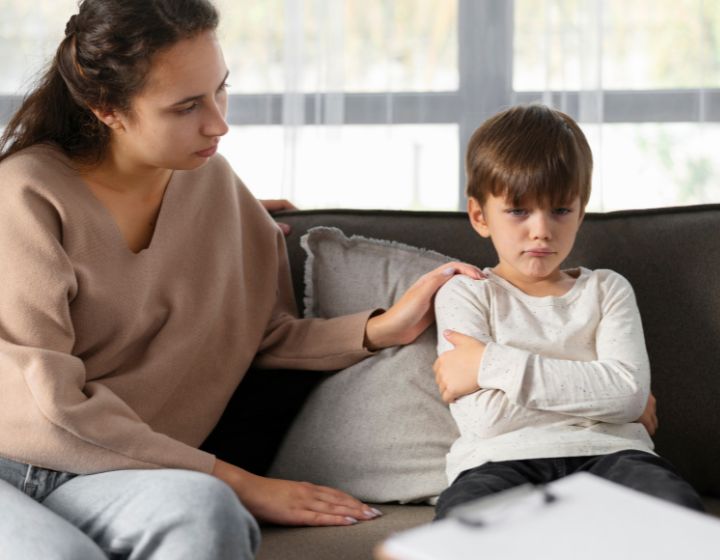
“Appa is a f*ing idiot.” I froze when my child swore for the first time. Here’s what parents need to know about children swearing, if it’s normal, and what parents should do next.
We were on the bus one sunny afternoon, just me and my two kids after school. My then 4-year-old daughter was cheerfully chatting with her older brother in the back seat when, out of nowhere, she blurted out:
“Appa is a f*ing idiot.”
My heart skipped a beat.
I turned my head slowly, unsure if I had heard her right. Did she just say that word? Where did she learn it? Did she even know what it meant?
I froze—not from anger, but from a mix of shock, confusion, and honestly, embarrassment. My first thought? She must’ve picked it up from her older brother, who had just started attending primary school.
Then the worry started spiralling:
Is he picking up bad company?
Is the school really a good environment for him?
Did we make the right decision in choosing that school?
I found myself quietly blaming the environment before even knowing the full story. But I held it in. In that moment, I could only manage my frustration. I reminded myself to stay calm.
When we got home, I sat both kids down gently and asked, “Where did you hear that word you said on the bus?”
They looked at each other. Then, in a small voice, my daughter said:
“Appa called us F idiots when we were playing and didn’t go to bed last week.”
That answer hit me hard. I felt relief—it wasn’t from school or their friends—but guilt rushed in too. I had made so many assumptions. I questioned my son, his peers, and the school. But the truth was closer to home.
And now I was angry—but not at the kids. I was upset with my partner. He had let that word slip during a difficult bedtime moment, and while I believed in calm, respectful communication, we have different parenting styles. Maybe it was a moment of exhaustion for him, but it still didn’t sit right.
That incident forced me to ask a deeper question:
How do we handle these moments—not just as parents—but as co-parents who don’t always agree?
Why do children start swearing?
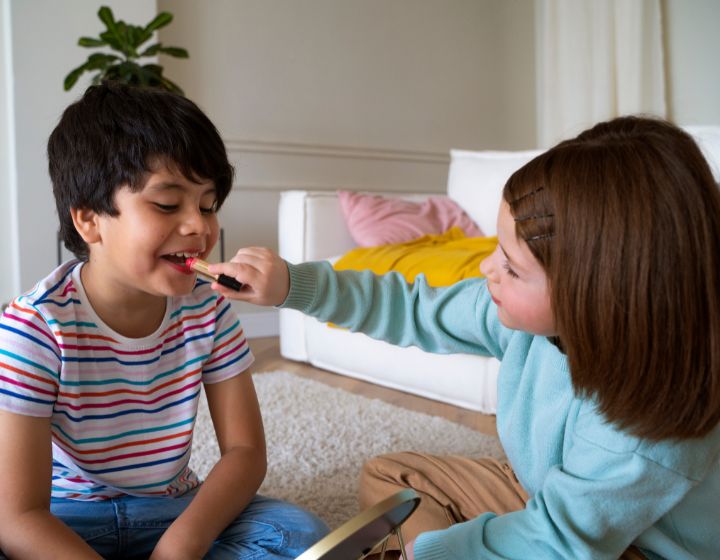
Is it normal for children to swear?
Yes, more than we often realise. In today’s world, swear words are everywhere—TV, YouTube, overheard conversations, even within the home. Kids don’t always know what they’re saying, but they repeat what feels loud, powerful, or interesting.
They’re not being defiant. Most of the time, they’re:
– Experimenting with language,
– Expressing intense emotions,
– Seeking attention, or
– Copying what they’ve heard from adults or peers.
Swearing is more about communication than rebellion—and it’s our job to decode that message.
Why it’s important to understand swearing in children
Children don’t just pick up swear words for no reason. When we understand the why, we can respond in ways that support their emotional development.
When your child swears, it’s an opportunity to:
– Teach appropriate expression of emotions
– Reinforce family values and boundaries
– Foster empathy and emotional literacy
Punishment or overreaction won’t solve it—but connection and calm guidance will.
What swearing might really mean
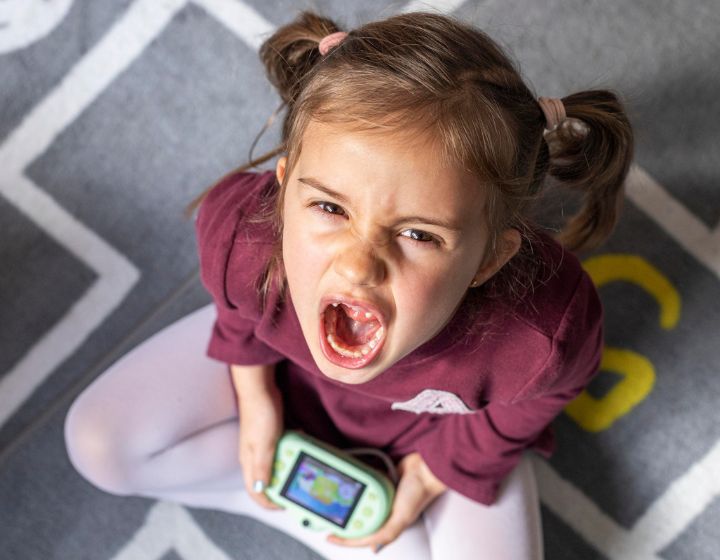
Here are the most common reasons kids use swear words and what it reveals about their development:
1. Curiosity and Experimentation (Ages 2–5)
Young kids are parrots. They repeat what they hear, whether it’s from a sibling, a TV show, or even you (oops!). They may not understand what the word means; they’re just curious about how it sounds and what kind of reaction it brings.
2. Attention-Seeking
Swear words are loaded. If a child notices that a “bad” word gets a big laugh—or an even bigger scolding—they may repeat it to get more of that attention. Good or bad, a strong reaction can reinforce the behaviour.
3. Expressing Big Emotions
Older children often use swear words to release emotions, anger, frustration, and even excitement. When kids don’t yet have the vocabulary to express how they feel, swearing becomes a shortcut for intensity.
4. Fitting In
By primary school, peer pressure becomes a real thing. Kids may swear to seem cool, feel grown-up, or match the language of a group they want to belong to.
5. Testing Boundaries
Some kids swear simply to push limits. “What will Mum do if I say this?” Swearing becomes a way to test rules, power, and independence.
What parents can do when kids swear
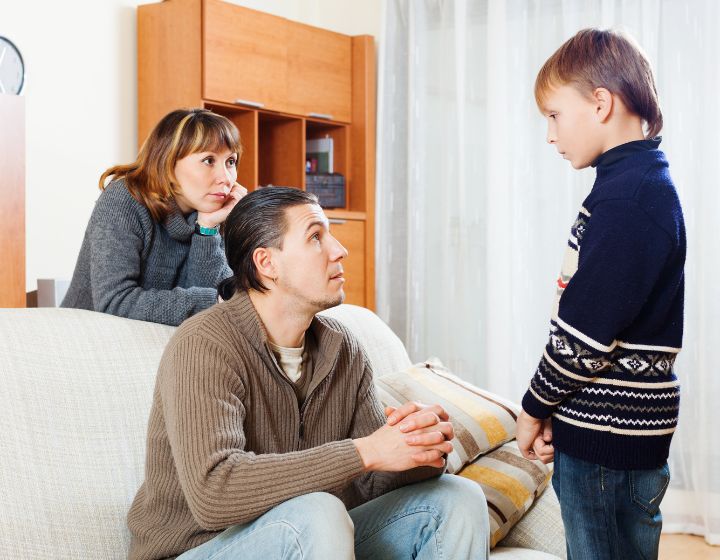
You don’t need to panic—but you do need to respond intentionally. Your reaction teaches them what’s acceptable and what’s not.
Let It Slide (Sometimes)
If your toddler repeats a word once, without knowing what it means, avoid making it a big deal. A strong reaction gives the word power. Ignore it, and it may disappear.
Gently Correct It
If your child knows it’s a “bad word,” acknowledge it calmly:
“That word isn’t respectful. Let’s find a better way to say how you’re feeling.”
No shaming—just a redirect.
Set Family Guidelines
If swearing becomes a habit, have a family conversation.
“In our home, we use respectful language—even when we’re upset.”
Be clear, consistent, and kind. Make sure all adults in the home are on the same page—even if your parenting styles differ.
Offer Emotional Alternatives
Help your child express feelings with better words:
– “I’m so mad right now!”
– “This is really unfair!”
– “I feel frustrated!”
Teaching them the language of emotions reduces the need for explosive words.
Walk the Talk
Kids don’t need perfection—but they do need consistency. If you swear in front of them (hey, it happens!), take accountability:
“I was frustrated and said something I shouldn’t have. Next time I’ll try to do better.”
That models growth, not guilt.
Final thoughts: What swearing teaches us about parenting
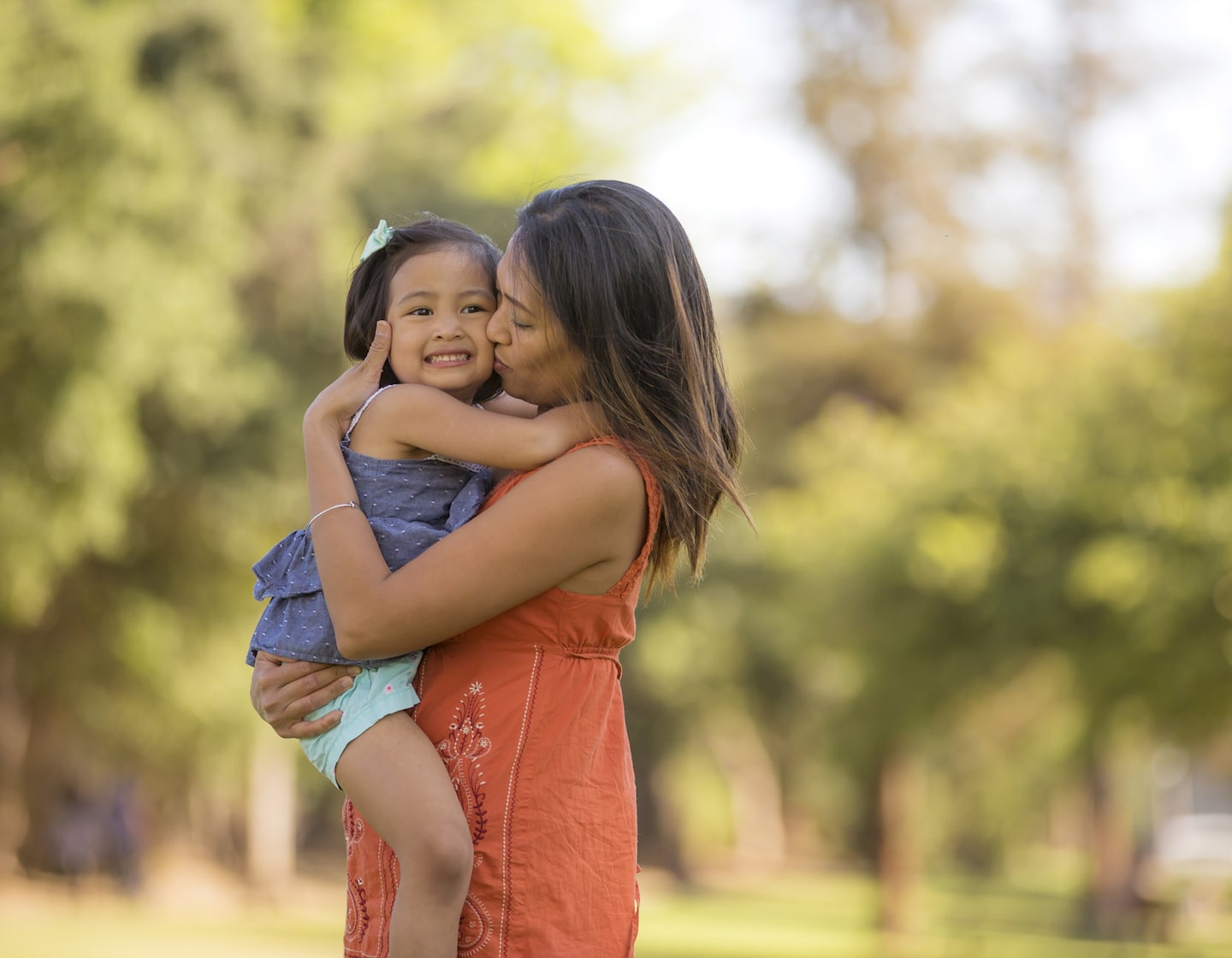
Swearing isn’t just about words—it’s about what’s behind the words.
That moment on the bus wasn’t just a surprise—it was a mirror. It reflected our home’s emotional tone, our co-parenting differences, and my own assumptions. I had blamed the school, my son’s new environment, even his friends. But the truth? It started at home, in a tired moment, with a frustrated adult.
And that’s the reality of parenting. It’s not about getting it right all the time. It’s about responding with awareness, grace, and a willingness to course correct.
So the next time your child swears, don’t panic. Don’t punish.
Pause. Observe. Ask. Guide.
You’re not raising a robot—you’re raising a human being who is learning how to speak, feel, and connect.






 View All
View All





 View All
View All








 View All
View All





